Biden Says He will Respond To Jordan Attack, But Signals Caution
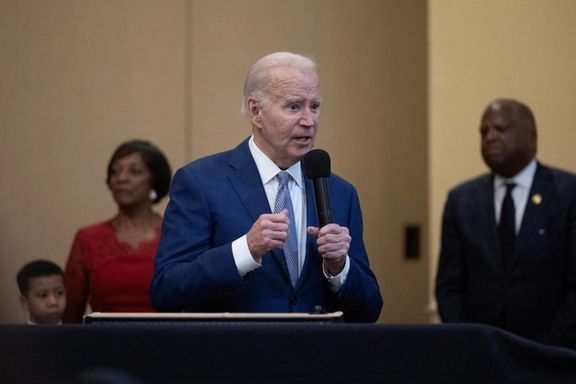
President Joe Biden said on Tuesday he has made up his mind on how to respond to an attack that killed US troops in Jordan, as he voiced concern about potential escalation.

President Joe Biden said on Tuesday he has made up his mind on how to respond to an attack that killed US troops in Jordan, as he voiced concern about potential escalation.
Biden, speaking to reporters as he left the White House on a campaign trip to Florida, did not elaborate on his decision, which came after consultations with top advisers at the White House.
On Sunday, Biden blamed Iran-backed militant groups for the attack, but it is not clear if he intends to retaliate directly against Iran or its proxy forces. Many lawmakers and former officials have urged a direct response to deter Tehran from further attacks. Since mid-October, the militant groups have launched 160 attacks on US troops in Iraq and Syria.
He said the United States does not need a wider war in the Middle East, echoing comments from other officials on Tuesday that the United States does not want a war with Iran.
Three days after the drone attack that killed three and injured 40 US service members, Biden has been weighing his options and the expectation has been that there will be retaliatory strikes, but the timing of the response has been unclear.
"I don't think we need a wider war in the Middle East. That's not what I'm looking for," said Biden.
Biden replied "yes" when asked if he had decided how to respond to the attacks.
Asked if Iran was responsible, Biden added: "I do hold... them responsible in the sense that they're supplying the weapons" to those who carried out the attacks.
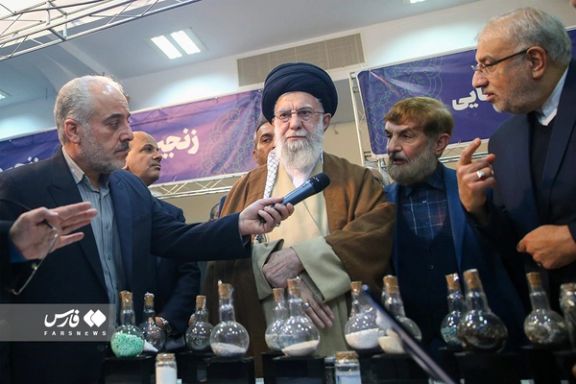
Amid worsening economic conditions, Iran’s Supreme Leader has moved to lift the spirit of the country’s lackluster industries, meeting businesspeople and touring an expo.
In a meeting with approximately a thousand business people and leading industrialists on Tuesday , Ali Khamenei underscored the pivotal role of the private sector in realizing Iran's major economic objectives, pressing for government backing, especially in removing obstacles to business.
Almost all industrial sectors of the country, including oil, gas, petrochemicals, auto manufacturing and banking systems are owned and governed by state entities. Khamenei claimed that the country’s economy is under “supervision of the government, which is different from intervention.” “This supervision is absolutely not subject to compromise," he underlined.
Khamenei’s meeting took place a day after he visited an “exhibition of Iran’s domestic production capabilities.” Unlike similar events that are normally held in designated fairgrounds, the event was held in a bunker at Khamenei’s residence, the so-called Imam Khomeini Hussainia, prompting a lot of Iranians to mock it online. “The exhibition we had the opportunity to visit was very inspiring and important. I believe this exhibition was a showcase of the scientific and technological prowess of the country,” Khamenei said Tuesday.
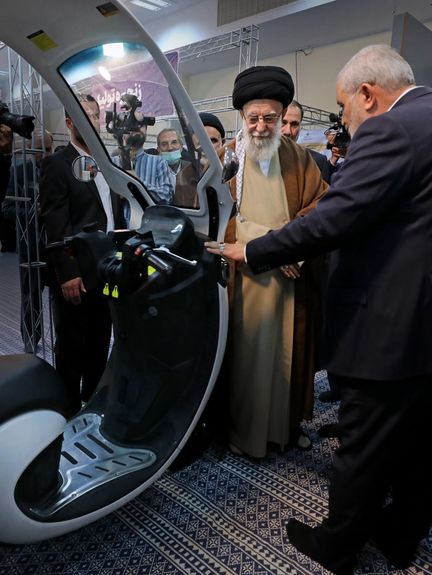
According to a report by Iran's leading economic newspaper Donyaye Eghtesad (World of Economy) earlier in January, production-related issues such as raw material shortages and difficulties in securing foreign currency have led to the suspension of many production units, pushing the manufacturing industry further into decline.
Soaring inflation, reduced consumer purchasing power, and a decline in demand for intermediate goods, also known as producer goods or semi-finished products, coupled with the government’s contractionary approach to the industrial sector and its interventions, have exacerbated the downturn in sales.
Despite the national currency rial hitting unprecedented lows due to escalating tensions in the Middle East and the potential for a US military clash with Iran as well as the prospect of Donald Trump winning the US presidency, Khamenei continues to outwardly retain an air of optimism. He expressed confidence that despite obstacles such as sanctions and unemployment, the Iranian economy has made substantial progress.
He emphasized that the private sector has the potential to propel Iran toward achieving the targeted 8% growth outlined in its seventh five-year plan. Conversely, the World Bank reported the outlook for Iran's GDP growth as 2.9% in 2022, 2.2% in 2023, and 1.9% in 2024.
The rial hit an all-time low on Tuesday amid fears of US retaliation for a drone attack over the weekend that killed three American servicemen in Jordan. The US dollar rose to nearly 600,000 rials, the highest since February 2022, when it briefly traded at that level.The Iranian currency, which has steadily lost value since the 1979 revolution, has fallen about 13-fold since 2018, when then-president Trump pulled the United States out of the 2015 JCPOA nuclear deal and imposed sanctions on Iran’s oil exports and international banking. Since then, the dollar rose from 42,000 rials to more than 580,000. Before the establishment of the Islamic Republic in 1979, the dollar traded at 70 rials.
On Tuesday, as the devaluation of the rial gained momentum, Iran International learnt that currency exchange offices in Tehran are now forbidden from publicly disclosing rates. The market is enveloped in a security atmosphere marked by the presence of plain clothes agents. Many exchange offices opt to abstain from transactions at the government-issued rates, leading them to either shut down or claim insufficient funds for currency exchanges.
Sepehr Khalaji, the Chief of Iran’s Economic Information and Publicity Headquarters, said Tuesday that “the enemy has orchestrated a situation to create economic fluctuations.” In the Islamic Republic's jargon "enemy" is used to refer primarily to the United States and Israel, and sometimes to their allies.
Hardline newspaper Kayhan, Khamenei’s mouthpiece, also claimed Tuesday that “the exchange rate of the dollar is determined by several Telegram channels outside the country and some channels affiliated with those foreign entities within the country,” once more falling back on foreign influence for the country's decline.
Iranian authorities consistently exhibit ambivalence about the impacts of international measures on the nation's economy. They often attribute any shortcomings to the actions of the US and its allies while simultaneously asserting that these punitive measures lack substantial efficacy.
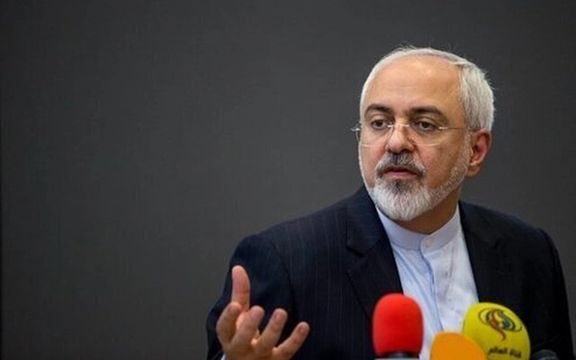
The former Iranian foreign minister has voiced support for the country’s regional proxies amidst the worst tensions in decades.
Speaking to hardline Tehran-based newspaper Vatan-e Emrooz, Mohammad Javad Zarif underscored Iran's “genuine support” for such militant groups in the region, dubbed the "Axis of Resistance", a brainchild of Iran’s Supreme Leader.
Since October, Iran and its regional allies have intensified their activities against Israel and the US, coinciding with Israel's military campaign in Gaza following Hamas' surprise attack on Israel which killed 1200.
For the past nearly four months, militias supported by Iran in Iraq and Syria have been directing attacks on US bases,
Hezbollah in Lebanon has been firing missiles towards northern Israel, and Houthi rebels in Yemen have been targeting commercial ships in the Red Sea.
They cite Israel's military campaign in Gaza as justification for their actions and advocate for a ceasefire.
Zarif’s statement follows the recent killing of three American soldiers in an attack by militant forces along the Jordan-Syria border. In response, the President of the United States has declared intentions to retaliate against such assaults.
Iranian officials claim these forces act “independently” and do not receive direct orders from Iran while Zarif claimed “the Islamic Republic can play an important role in supporting the resistance."
Zarif, who served as Iran's Foreign Minister for eight years under President Hassan Rouhani, faced sanctions from the Trump administration under an executive order targeting key figures associated with the Iranian leadership.

An Iranian lawmaker says the execution of four Kurdish prisoners, who were hanged in Iran on Monday is a lesson to anyone who wants to overthrow the regime.
“These executions are a lesson for anyone who wants to stand against the will of the Iranian nation because the Iranian nation will punish them for their deeds,” Mehdi Sa’adati, a member of the parliament’s National Security and Foreign Policy Committee told the semi-official Iranian Students News Agency (ISNA) Monday.
Iran’s parliament is controlled by hardliners, many of whom come from the ranks of the Revolutionary Guards, and have fully supported security and intelligence agencies in their crackdown on dissent.
The four prisoners -- Pejman Fatehi, Mohsen Mazloum, Mohammad (Hazhir) Faramarzi and Wafa Azarbar – who were hanged at Ghezel Hesar Prison in Karaj, near Tehran, were accused of planning to blow up a defense ministry facility in Najafabad, Esfahan Province in July 2022. They were accused of being Israeli agents.
“Cooperation with Mossad has no outcome other than being executed. This is the Iranian nation’s demand,” he added.
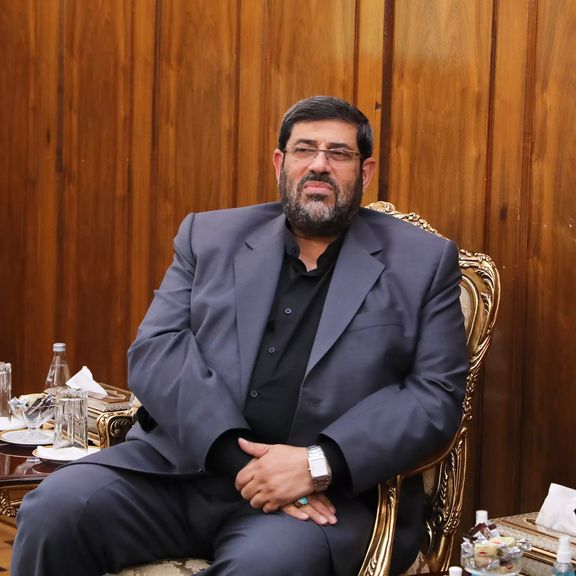
Iranian authorities claim that the four young men were apprehended in a village in Iran’s West Azarbaijan Province, just days before they were set to execute their planned operation. They further allege that these individuals received training from Israel's Mossad in three African countries, including Tanzania, where they practiced using similar structures as target simulations.
The prisoners, who belonged to the Kurdish Komala party, were allegedly forced into making false self-incriminating confessions, which the state television (IRIB) aired in October 2022, and were tried behind closed doors without due process.
Their lawyer, Masoud Shamsnejad, has said that he was not allowed to see the case files and the Supreme Court turned down his request for a retrial for lack of submission of court documents.
The executions have enraged many Iranians, particularly those in Kurdish areas, where they went on a general strike on Tuesday. Seven Kurdish human rights organizations including Hengaw Organization for Human Rights, as well the Komala Party of Iranian Kurdistan called for the general strike in the Kurdish areas of Iran in protest to the executions and to draw the attention of the international community to the worrying human rights situation in Iran's Kurdish areas.
“I assure that Kurdistan will not remain silent in the face of the killing of its children,” Abdullah Mohtadi, secretary general of the Komala Party, tweeted Monday.
Rights organizations have also warned that Iran’s Supreme Court has confirmed the death sentence passed on six other Kurdish prisoners who will be in imminent danger of execution.
Iran International has received reports about total or partial internet disruptions in some areas of Iran's Kordestan Province.
Amnesty International said in a tweet on Monday that it was horrified by the arbitrary execution of the four Kurdish dissidents “after a grossly unfair secret trial”.
“Their execution comes amid an alarming spike in executions by Iran's authorities, including as tool of political repression against protesters, dissidents & oppressed ethnic minorities, particularly Kurds & Baluchis, who are disproportionately targeted by the death penalty,” Amnesty said while urging the international community to condemn the Islamic Republic’s “killing spree and intensified use of the death penalty as a tool of repression.”
Rights organizations and activists have called on Nada Al-Nashif, the UN Deputy High Commissioner for Human Rights, to cancel her visit to Tehran from 2 to 5 February to investigate executions and women's rights violations in protest to the regime’s executions.
“The timing of this visit, the context in which it would take place and its modalities raise very serious concerns. We respectfully urge you to hear these concerns and to reconsider the opportunity, timing and modalities of this visit,” Article 19, an international human rights organization, said in an open letter addressed to UN High Commissioner for Human Rights Volker Türk and Al-Nashif.

An IRGC-affiliated news website has dismissed allegations that the classic Bugatti car once owned by Iran's former Shah has been sold to address budget shortfalls.
Fars News Agency stated that in 1959, the car in question was sold to an individual named Houshang Jalili and subsequently taken out of the country.
"The car, bearing its Persian plate, was later sold to an American collector in the 1960s and has since been part of the collection at the Petersen Museum in California. It has never been among the assets of Sa’adabad Palace since the Islamic Revolution," Fars News added.
The agency wrote that the car, currently on display at the Petersen Museum in America, was originally gifted by the French government in 1939 to mark the marriage of Mohammad Reza Pahlavi to Egyptian princess Fawzia Fuad.
This isn't the first instance of reports circulating about the sale of this prestigious car. In 2020, Kia Parsa, the director of the Sa’adabad Cultural-Historical Complex, refuted similar social media reports regarding the sale of a 57C Bugatti, once owned by Mohammad Reza Pahlavi, following the 1979 Islamic Revolution.
Iran is facing a significant infrastructure deficit estimated at $500 billion. While many commentators and regime politicians in Iran often attribute economic challenges to President Ebrahim Raisi's administration, broader factors including foreign policy decisions, particularly under Supreme Leader Ali Khamenei, play a significant role. Sanctions from the US and Europe, coupled with limited foreign investments, have intensified Iran's reliance on dwindling oil exports.
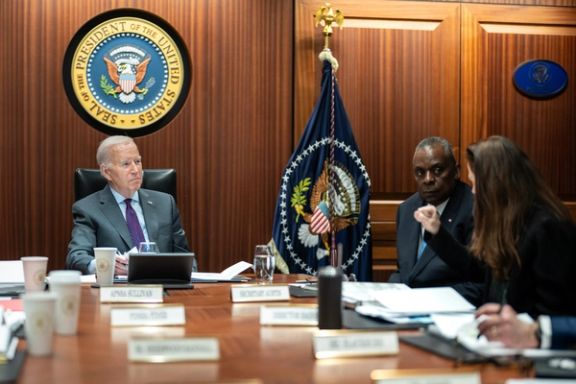
The Biden administration on Monday grappled with the idea of retaliation against Iran and its proxies without escalation of the conflict in the Middle East.
Unconfirmed reports suggested that President Biden would authorize military action in the Middle East early Tuesday local time. But no US strikes were recorded, further angering those in Washington who have been calling on Biden to ‘toughen up’ on Iran for many months –and who believe loss of American life must be avenged.
That is something the administration has promised, of course.
“The president and I will not tolerate attacks on US forces and we will take all necessary actions to defend the US and our troops,” Secretary of Defense Lloyd Austin said Monday, reiterating that “all necessary actions” will be taken.
But “necessary actions” often come with consequences. And it’s those potential consequences, it seems, that the Biden administration finds unpalatable.
“We want to avoid broader escalation,” Secretary of State Antony Blinken said, betraying the prevailing perception within the US government that a substantive attack against Iran would lead to a full-scale war in a region that’s “incredibly volatile” already.
“I would argue that we’ve not seen a situation as dangerous as the one we’re facing now across the region at least since 1973, and arguably even before that,” Blinken said, warning at the same time that the US will respond “strongly” to anyone who attempts to use the crisis to attack American personnel.
Observers noted that just last September, National Security Adviser Jake Sullivan had said that the Middle Eat is "quieter today than it's been in two decades," highlighting what they believe is the administration's lack of a coherent Middle East policy.
For critics, Iran seems to be impervious to warnings from the Biden administration for that reason. After all, the original warning, “don’t, don’t, don’t” was never backed up by action. And later statements, such as “the message has been delivered to Iran” with the airstrikes against Houthis in Yemen turned out to be more of an expression of wish than a pronouncement of fact.
Still, many experts believe that a consequential strike is inevitable this time.
With all his worries about regional “peace and stability”, with all his aversion to an oil price hike that would hit American consumers, President Biden may find it all but impossible to enter a presidential race am image of weakness in foreign policy.
Biden’s potential rival in the 2024 elections Nikkie Haley lambasted the incumbent in a Fox News interview Monday, calling for “hitting Iran smart” and “taking away their capabilities” so that no more American soldiers are hurt.
“Joe Biden has been appeasing Iran for too long,” Haley posted on X. “Dictators and thugs only respond to strength.”
More than 40 US troops have been injured in last weekend’s attack, including five with traumatic brain injury. Since October, at least 160 attacks have been recorded against American soldiers in Iraq and Syria since October. Less than ten percent of those attacks have been reciprocated. And it’s precisely due to this imbalance in aggression, Biden critics say, that three soldiers have lost their lives.
“Real leadership requires real action,” said Rep. Mike Rogers, chair of the House Armed Services Committee, in a statement. “Attacks on our servicemembers, allies, and interests will continue until this president shows strong leadership and strikes fear in our enemies.”
President Biden has vowed a strong response to the attacks that he has laid at the door of the regime in Iran. The response, according to secretary Blinken, “could be multi-levelled, come in stages, and be sustained over time.”
Experts have predicted –or suggested– a range of possible retaliatory actions: from Soleimani-style killing of military men to cyber attacks on IRGC command and control, from CIA operations to airstrikes against Iran’s navy or even oil production facilities inside Iran.
Having sensed the danger, perhaps, Iranian officials have disowned last weekend’s attack on the US base in Jordan, claiming that the array of armed groups that the Islamic Republic funds, trains, equips, and calls “Resistance”, act independently and based on their specific agendas and contingencies.
According to ‘hit Iran’ advocates, these groups cannot function –or will drastically diminish– without Iran’s support. And Iran would withdraw its support only if it’s forced to, the argument goes.